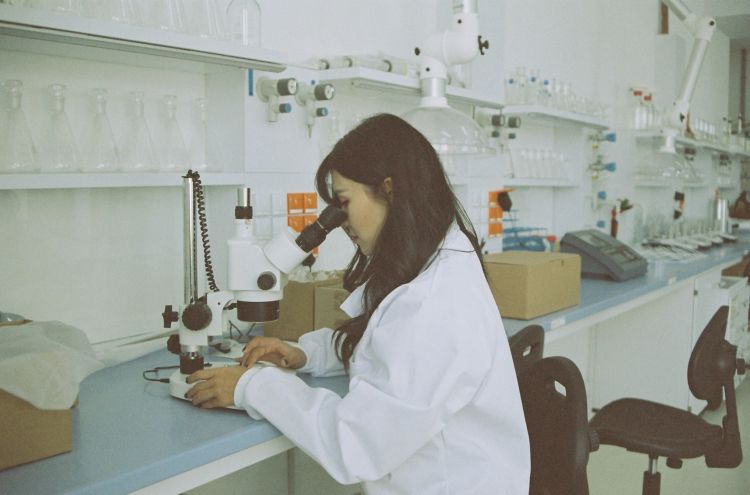Georgia Bio’s 2020 Legislative Agenda and What to Watch
By Joseph Santoro

The 2020 Georgia state legislative session officially kicked off yesterday. As usual, the first week will set the course for the session, one which we believe will be compressed compared to 2019 primarily because it’s an election year and members need to get home to be close to their constituents.
Our 2020 Georgia Policy and State Legislative Agenda
As the state’s life sciences advocacy group, the following are our areas of focus and goals. Please note: we are working on more detailed policy statements for all focus areas.
Workforce development – Continue funding the Department of Education to advance Georgia Bio’s Rural Teacher Training Initiative (RTTI) to strengthen Georgia’s life sciences workforce pipeline through classroom-to-career initiatives that align with industry needs. The legislature provided more than $300,000 in 2019 to kick start the program. The first ever two-day training session is this week at the University of Georgia’s facility in Griffin. Sixty-four teachers have enrolled with the potential to impact more than 10,000 students across the state.
Biopharma – Cultivate the biopharma R&D and manufacturing ecosystem in Georgia by supporting strong intellectual property protections for patents, data protection and coverage and payment policies that recognize the value of medical innovation.
Economic incentives and tax reforms – Preserve existing economic development incentives and enact new tax policies that spur the life science industry and job growth. We reported last year that Georgia’s life science industry experienced a 14.9% growth in employment in the past decade. Including multiplier effects, the industry supports around 194,000 jobs and contributes $21.8 billion to Georgia’s GDP.
Medtech – Support investment, innovation and patient access to medical device and diagnostic technologies to improve the efficiency of a healthcare system’s ability to detect diseases earlier and to reduce costs through more effective treatments.
Translational Research – Support funding for the Georgia Research Alliance to levels necessary to spur bioscience innovations and commercialization through our research universities; strategically improve funding for post-secondary institutions in order to grow the state’s life science economy.
Digital Health – Streamline regulations and expand the reimbursement of digital apps and devices, remote patient monitoring technologies, and genomic products as well as enhance educational efforts that help patients, providers and caregivers.
Patient Access – Ensure patient access to innovative therapies and adequate provider networks through private and public insurance, including Medicaid, while enhancing plan transparency and encouraging competition among providers and insurers.
Food & Agriculture / Industrial and Environmental Biotech – Support the R&D of cutting-edge innovation in Agricultural & Food and Industrial & Environmental biotechnology to improve crop yields, enhance food quality, help feed a growing population and foster responsible environmental biotech practices.
What we believe the session holds
FY 2021 Budget – Passing a budget is the only constitutional requirement of the Georgia General Assembly. The budget process is going to play a large role in how legislation gets passed, especially with the Governor’s 4-7% budget cuts.
Pharmacy Benefit Managers (PBMs) – As part of the Special Committee on Access to Quality Healthcare Expect discussion, plan to see legislation that seeks to improve patient access to therapies, reduces overall healthcare spending – including consumer costs – and improves transparency from PBMs to be introduced and widely discussed.
Patient advocacy and rare disease advisory council – Senate Bill 274 would create a rare disease advisory council with the intention of addressing the needs of the rare disease community in Georgia by giving patients, families, caregivers and other stakeholders an opportunity to make formal recommendations to state leaders about the most important issues they face. While we have not taken a formal stance on this bill, we are working on a patient advocacy coalition with our colleagues at Pfizer. Because so many of our members have patient advocacy staff or “elements,” we seek to help them align more closely, connect on best practices, address challenges and more clearly understand what our role should be as an organization on the subject.
Ethylene oxide – In light of recent data that have come to light, there are concerns about ethylene oxide levels in our air. Expect to see related legislation, but not necessarily definitive action. It is possible, if not likely, the legislation will generate further study for additional data and details to support a more robust, refined bill in 2021.
Get Engaged!
Join us for Georgia Life Sciences Day at the State Capitol on February 25th. This is an excellent opportunity for members to showcase their innovative products, services, and discoveries at the Georgia State Capitol. Register here.

If you would like to plug into our Legislative Affairs Committee and be added to our bi-weekly calls during the session, email Joseph Santoro – jsantoro@gabio.org
As always, feel free to contact Joseph or Maria on any issues, local, state or federal that impact your ability to grow your life science business or you feel need to be addressed from a legislative affairs perspective to the benefit of our life science ecosystem and patient population.
The post Georgia Bio’s 2020 Legislative Agenda and What to Watch appeared first on Georgia Bio.





